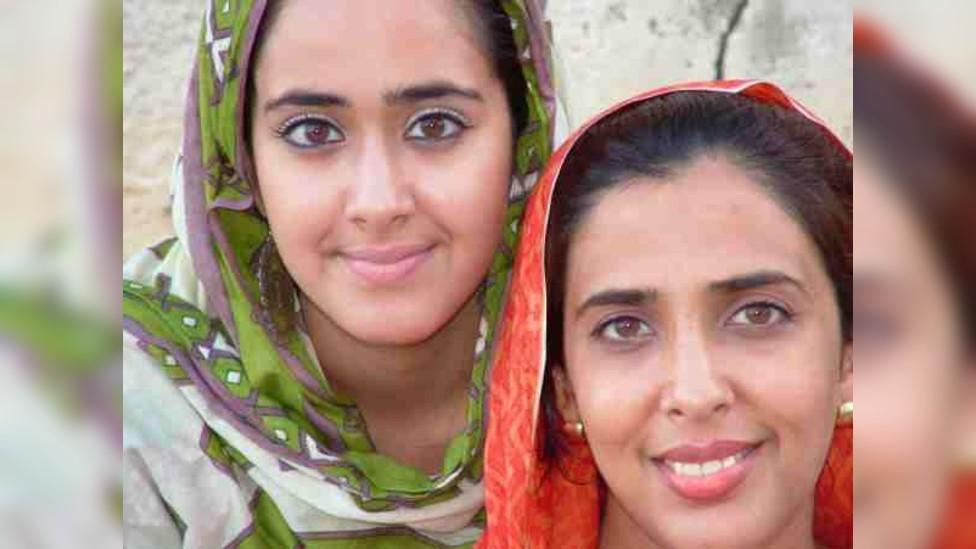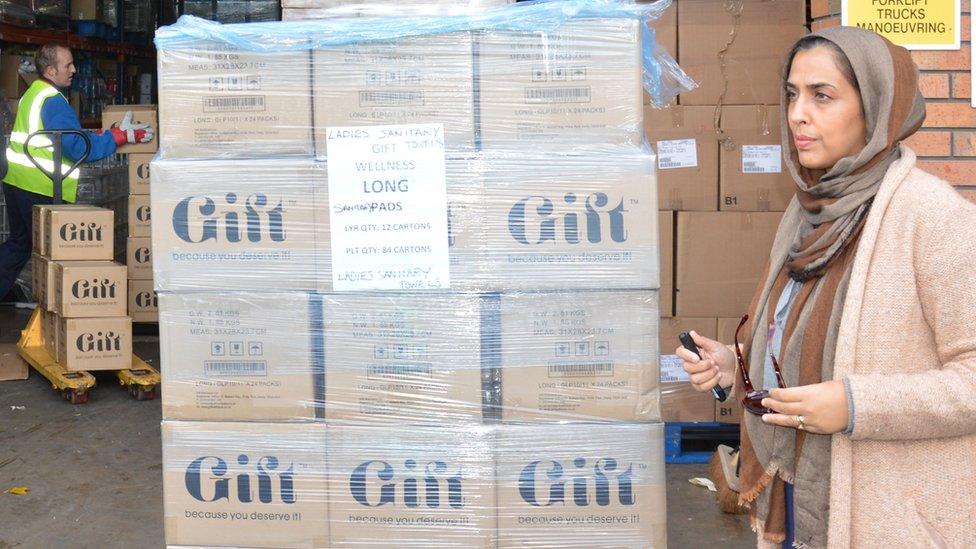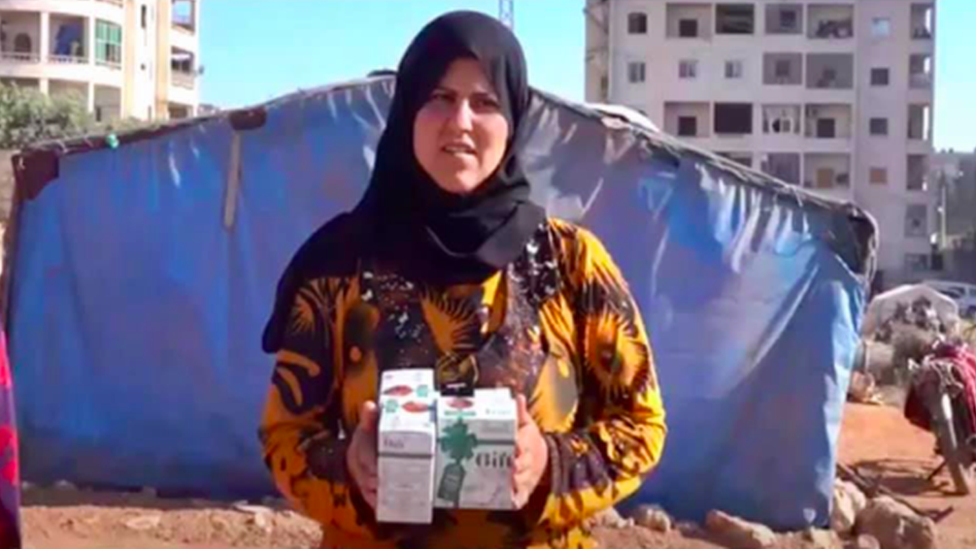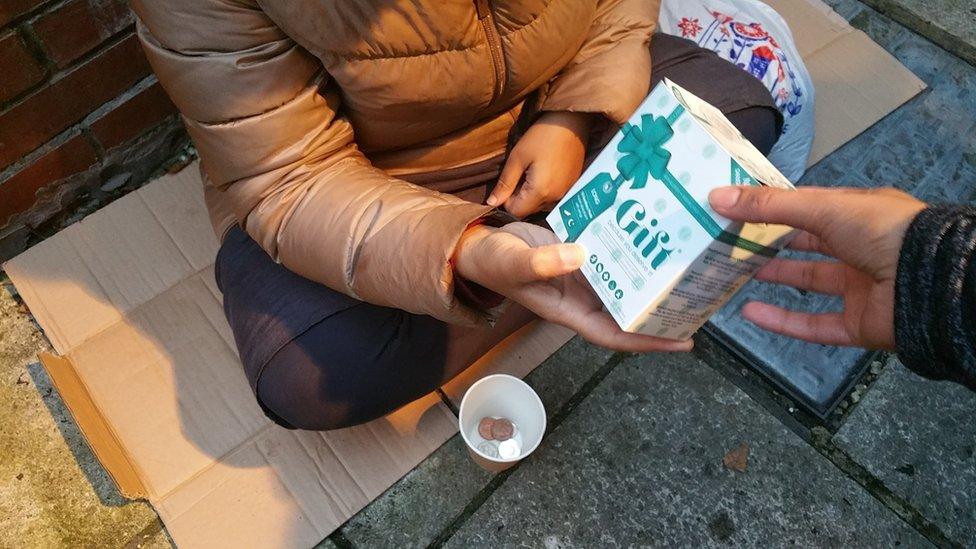Murdered daughter inspires Derby mum's period poverty work
- Published

Dr Ahmed said her daughter (left) was "passionate" about charity work
A mother has said her murdered daughter is the "driving force" behind her charity work.
Dr Zareen Ahmed's daughter Halimah was killed in 2007 by a mental health patient who then killed himself.
The Derby family set up a trust in her name, opened a school in Pakistan and also sent millions of sanitary products to women worldwide.
Dr Ahmed has now launched an event called Red Rebel Day to highlight period poverty and raise £100,000.
The money will be used to fund more menstrual pads for distribution.

Dr Ahmed said her daughter is her driving force
The 54-year-old said her daughter - who had just started her "dream course" at university - "was passionate about charity work".
"We had a pact that after she graduated we would work together to set up our own ethical business and charity," she said.
"I just feel she is my driving force. This is all my expression of love for Halimah and the work we would have been doing together."

Dr Ahmed sent her first container of sanitary towels to a Syrian refugee camp in 2013
Dr Ahmed said she became aware of the issues many women face in accessing sanitary products after reading an article about Syrian women tearing strips of fabric from their dresses for makeshift pads.
"In that moment I saw myself giving pads to these women," she added.
"In many regions of the world, girls are prevented from going to school once they start their period just because of a lack of a product."
She set up a social enterprise, Gift Wellness, to fund sanitary products for women and girls in need.
In 2013 she sent her first container of sanitary towels to a Syrian refugee camp. She has now donated more than six million pads.
Dr Ahmed said the pandemic had seen an increased need for sanitary products in the UK.
"We have more than doubled the donations during the pandemic with a lot of food banks opening and people losing their jobs," she said.
"These women don't have the money to feed their kids and they certainly aren't going to have the money to buy menstrual products.
"Women always look after themselves last."

Dr Ahmed said there had been a rise in demand for products in the UK since the start of the pandemic
Through the Red Rebel Day charity event, which will run between 21 and 22 March, Dr Ahmed hopes to raise £100,000, which will fund 600,000 menstrual pads for more than 12,000 women and girls for six months.
She has organised a day of talks and information events for people to learn about period poverty and is encouraging people to organise their own fundraisers too.
"Period poverty isn't just about a lack of access and affordability of products, it's also about the fact that it's a taboo subject that needs to be normalised in order for women to have equal rights," she said.

Follow BBC East Midlands on Facebook, external, Twitter, external, or Instagram, external. Send your story ideas to eastmidsnews@bbc.co.uk, external.